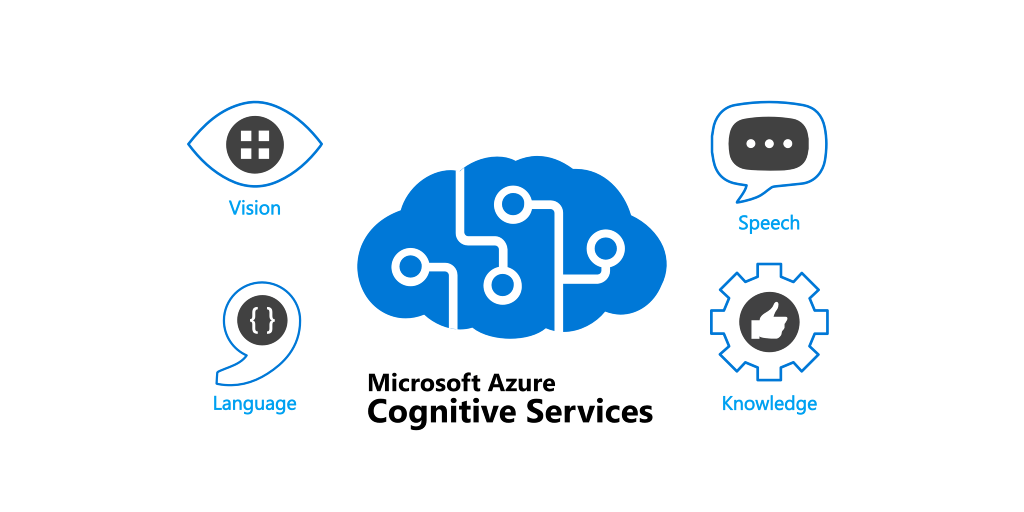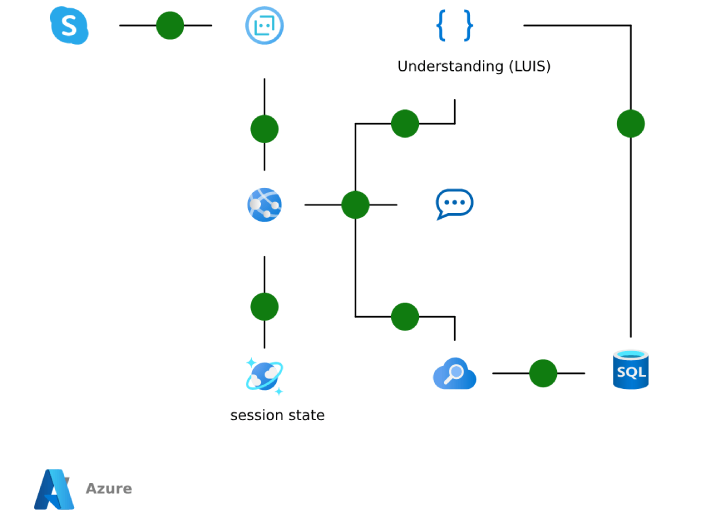AI is transforming customer care - Part 1
The adoption of AI in customer service is a transformative step for businesses seeking to excel in the competitive landscape. In this article, we investigate the applications of AI and what benefits it brings to our clients.

Relevance of a conversational chatbot as a virtual agent
The adoption of AI in customer service is a transformative step for businesses seeking to excel in today's competitive landscape. Traditionally, customer service chatbots were often limited by their robotic nature and formulaic responses. However, recent advancements in AI have set the stage for chatbots to become more intelligent, more conversational, and more helpful.
With Azure Bot Service, it is possible to Design and build enterprise-grade conversational AI bots, enabling businesses to provide immediate assistance and personalized interactions. With AI-powered chatbots, companies can handle a wide range of customer inquiries, address common issues, and provide relevant information or solutions around the clock.
There are obvious benefits that are brought by employing AI in the service. One of the many are:
Enhanced Customer Experience
Chatbots with AI provide prompt and personalized responses, improving overall customer experience. They can quickly address common queries, assist with product recommendations, and guide customers through various processes, leading to increased customer satisfaction and loyalty.
Efficient Resource Allocation
By automating routine and repetitive tasks, chatbots free up human agents' time, allowing them to focus on more complex issues that require human expertise. This efficient resource allocation optimizes operational efficiency and reduces customer wait times.
24/7 Availability and omnichannel solution
AI-powered chatbots can provide round-the-clock support, ensuring that customers can access assistance at any time through different channels. This availability is particularly valuable for businesses with global reach or those operating in different time zones.
Scalability
Chatbots can handle multiple customer inquiries simultaneously, ensuring scalability and reducing the need for additional human agents during peak periods. This scalability enables businesses to provide consistent support even during high-demand periods.
Cost Savings
Deploying chatbots with AI can lead to substantial cost savings for businesses. By automating customer interactions, companies can reduce labour costs associated with customer support and reallocate resources to other areas of the business

Multilingual ticket management
Language services of Azure Cognitive Services offer robust text classification and question-answering capabilities. With Natural Language Understanding, you can classify the sentiment of text and detect the language it is written in. Additionally, you can leverage prebuilt capabilities to answer questions in unstructured texts or customize domain-specific question-and-answer pairs using your own data.
In addition to language-related capabilities, Azure Cognitive Services offers Azure Vision Services, which leverage AI to analyze visual content. For companies dealing with email communications, Azure Vision Services can play a pivotal role in identifying and analyzing content attached to emails. By automatically processing and understanding visual information, businesses can extract relevant data, gain insights, and take appropriate actions based on the analyzed content.
The reasons why we pick up Cognitive services to enable multilingual ticket management are:
Natural Language Processing (NLP) Capabilities
These capabilities include named entity recognition (NER), language detection, sentiment analysis, summarization, key phrase extraction, entity linking, text analytics for health, custom text classification, conversational language understanding, and question answering.
Language Detection
The language detection feature of Azure Language Service automatically detects the language in which a customer query or text input is written. This is particularly useful in multilingual customer support scenarios, as it enables the application to route the query to the appropriate language-specific support team or provide language-specific responses.
Sentiment Analysis
Azure Language Service can assess the sentiment expressed in customer feedback, reviews, or social media posts. This helps businesses understand customer satisfaction levels, identify areas for improvement, and respond promptly to customer concerns, ultimately enhancing the overall customer experience.
Multilingual Support
The Language Service offers access to state-of-the-art NLP models that support a wide range of languages. With multilingual capabilities, developers can build intelligent, multi-language solutions for their applications. This enables businesses to cater to a global audience and effectively process text in different languages.
Automated Ticket Escalation
In complex customer service scenarios, Decision Cognitive Services can analyze ticket information and automatically determine if an escalation is required. By considering factors such as customer sentiment, ticket history, and predefined rules, these services can identify critical issues that require immediate attention. Automated ticket escalation enables companies to prioritize and resolve high-priority cases promptly, ensuring customer satisfaction.

Conversational IVR
Interactive Voice Response (IVR) systems have long been used in customer service to automate customer interactions over the phone. However, with the advancements in technology and the availability of Azure Cognitive Services, there is now an opportunity to replace traditional IVR systems with intelligent and natural language processing capabilities. Azure Cognitive Services offer a range of tools and services that can enhance customer service experiences and streamline communication channels.
Enhanced Speech Recognition and Transcription
Azure Cognitive Services, such as the Speech Service, provide advanced speech recognition and transcription capabilities. By leveraging this service, customer service teams can accurately transcribe raw speech data into text form, eliminating the need for customers to navigate through complex IVR menus. The system can understand spoken requests and convert them into actionable data.
Language Understanding and Intent Recognition
Conversational Language Understanding is a component of Azure Cognitive Services, enabling customer service systems to identify caller intent and spoken entities. By analyzing transcribed text, cognitive services can determine the purpose of the call, whether it's placing an order, finding information, or resolving an issue. This allows customer service teams to route calls more effectively and provide tailored responses based on customer needs.
Seamless Integration with Conversational AI
With Azure Bot Service and the Microsoft Bot Framework, customer service teams can create conversational AI bots that interact with customers in a natural and intuitive manner. These bots can handle customer requests, provide instant responses, and even perform complex tasks, such as checking order status or scheduling appointments. By integrating such bots into the customer service workflow, organizations can offer a more engaging and personalized experience.
Scalability and Availability
Azure Cognitive Services, including the underlying infrastructure, offer scalability and high availability, ensuring that customer service systems can handle peak call volumes and provide uninterrupted service.

This piece was written by Juan Gonzalez, Business Development Representative at ACTUM Digital.
You may also like...
[28/07/2023] AI is transforming customer care - Part 2
AI is helping customer care agents with resolving complex challenges for their clients, resulting in quicker resolution and less stress on agents.
Read the Insight